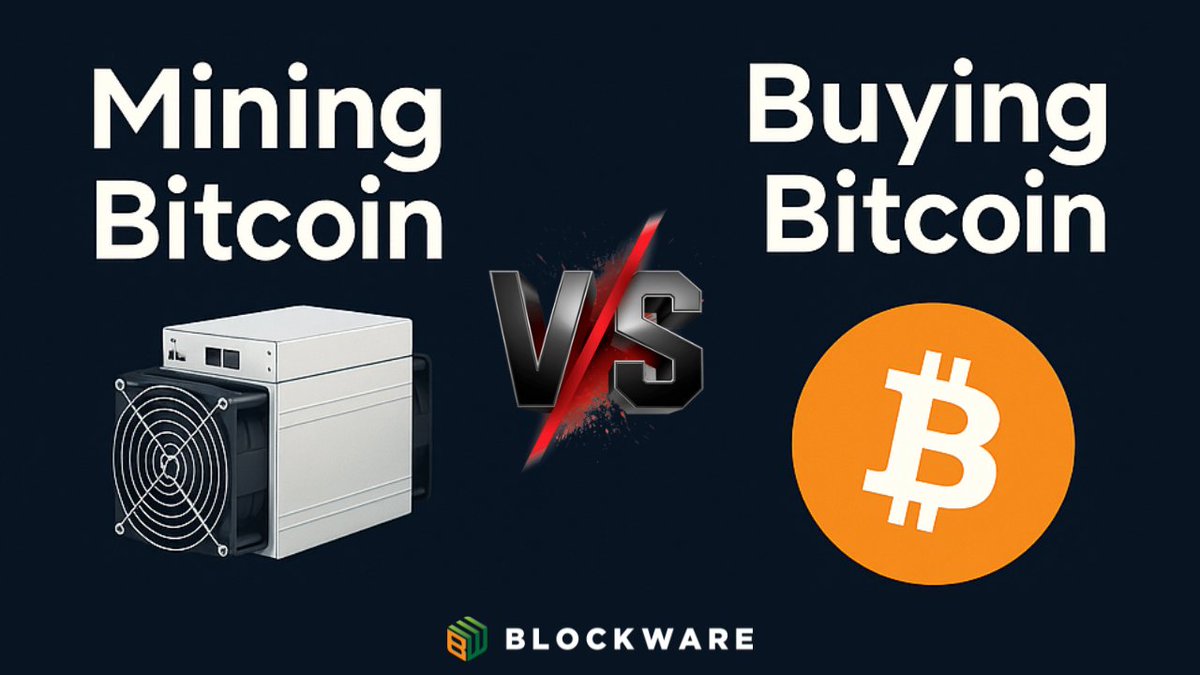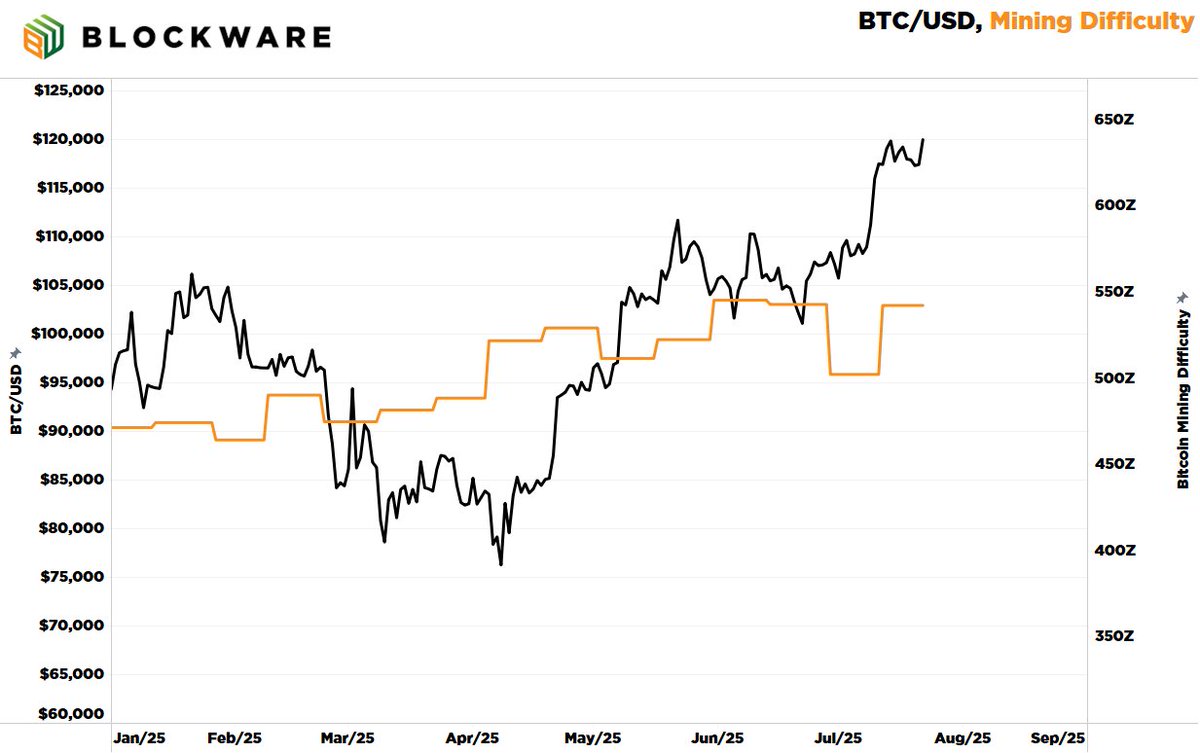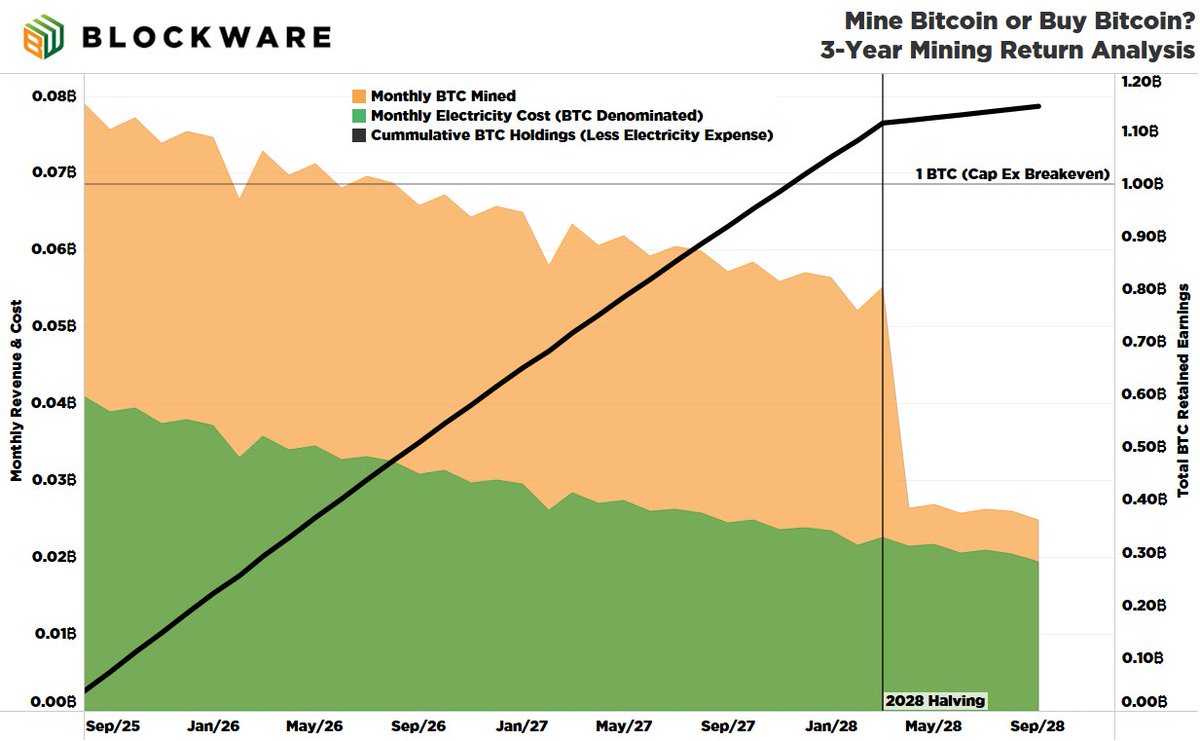The market for #Bitcoin mining rigs is niche and dynamic.
Buying the right machines, at the right time, for the right price, is one of many challenges facing Bitcoin miners.
Let's talk ASICs🧵👇
Buying the right machines, at the right time, for the right price, is one of many challenges facing Bitcoin miners.
Let's talk ASICs🧵👇

As ASICs are capable of converting watts into #BTC, the BTC/USD exchange rate (price) is the most impactful variable on ASIC prices in the short term.
If an ASIC is capable of turning 'x $' worth of energy into '> x $' worth of BTC, that's a valuable piece of equipment.
If an ASIC is capable of turning 'x $' worth of energy into '> x $' worth of BTC, that's a valuable piece of equipment.
As the gap between cost to buy #BTC on the open market and the cost to produce BTC via mining grows, the price of ASICs increases.
Vis versa when the price of BTC decreases.
Vis versa when the price of BTC decreases.

The second most impactful variable on the price of ASICs is time.⌛
However, this is becoming less impactful of a variable.
Allow us to explain.👇
However, this is becoming less impactful of a variable.
Allow us to explain.👇

"Time" depreciates the value of ASICs primarily due to the release of newer, more efficient machines.
However, ASICs are approaching the end of Moore's Law.
The ability to produce machines magnitudes more efficient than previous models is over.
However, ASICs are approaching the end of Moore's Law.
The ability to produce machines magnitudes more efficient than previous models is over.

Our research report "Pricing ASICs", quantifies how time is less impactful of a variable on ASIC prices.
For the Antminer S9:
Holding the price of #BTC equal, an additional month of time would likely result in the market price of the mining rig dropping by 9.07%.
For the Antminer S9:
Holding the price of #BTC equal, an additional month of time would likely result in the market price of the mining rig dropping by 9.07%.

For the Antminer S19:
Holding the price of BTC equal, an additional month of time would likely result in the market price of the mining rig dropping by 1.70%.
Clearly time is much less of a factor on the price of the S19.
Read the full report here: blockwaresolutions.com/s/Pricing-ASIC…
Holding the price of BTC equal, an additional month of time would likely result in the market price of the mining rig dropping by 1.70%.
Clearly time is much less of a factor on the price of the S19.
Read the full report here: blockwaresolutions.com/s/Pricing-ASIC…

Taking a look at a chart denominating ASIC prices in terms of #BTC, two points stand out.
1. BTC-denominated ASIC prices decline tremendously in the months after release.
2. Over the long term, ASICs retain a good portion of their value in BTC terms.
1. BTC-denominated ASIC prices decline tremendously in the months after release.
2. Over the long term, ASICs retain a good portion of their value in BTC terms.

The first point presents an interesting set of trade offs.
Buying machines upon release will result in a higher capital expense. However, you'll have the best rig on the market, allowing you to out hash your competition for some time, potentially making it worthwhile.
Buying machines upon release will result in a higher capital expense. However, you'll have the best rig on the market, allowing you to out hash your competition for some time, potentially making it worthwhile.
Alternatively, you can wait to purchase new-gen models; and do so turnkey so that you are hashing immediately.
This gives you the benefit of having the best ASICs available, while also lowering your Cap. Ex.
The Blockware Marketplace allows users to execute such a strategy.
This gives you the benefit of having the best ASICs available, while also lowering your Cap. Ex.
The Blockware Marketplace allows users to execute such a strategy.

In regards to the second point, after the initial decline in price, ASICs tend to retain their value in #BTC terms over the long run.
Moreover, old or mid generation machines can even outperform spot BTC during a bull market.
Moreover, old or mid generation machines can even outperform spot BTC during a bull market.

To summarize:
1. The $ price of ASICs is heavily correlated with the price of #BTC
2. Current generation ASICs are maintaining value for longer periods of time.
3. The Blockware Marketplace allows users to buy and sell currently hashing ASICs, capitalizing on #2.
1. The $ price of ASICs is heavily correlated with the price of #BTC
2. Current generation ASICs are maintaining value for longer periods of time.
3. The Blockware Marketplace allows users to buy and sell currently hashing ASICs, capitalizing on #2.
Get signed up for the marketplace and start trading ASICs today!👇
marketplace.blockwaresolutions.com/marketplace
marketplace.blockwaresolutions.com/marketplace
• • •
Missing some Tweet in this thread? You can try to
force a refresh














